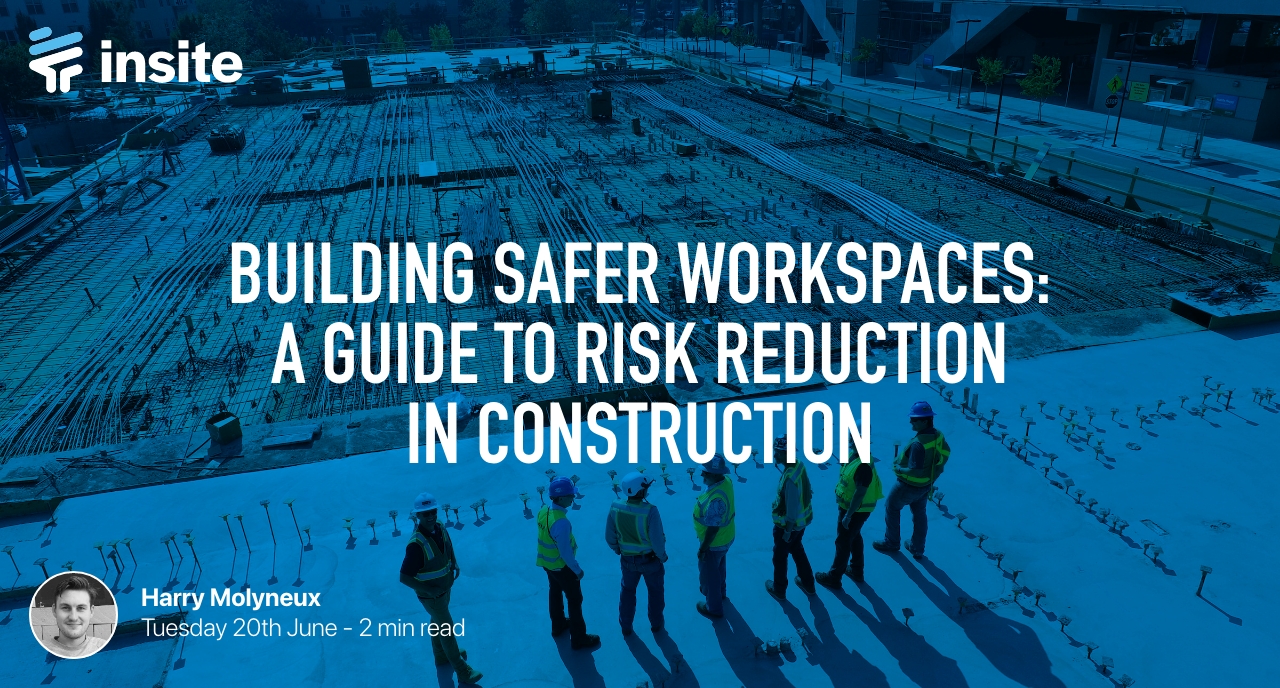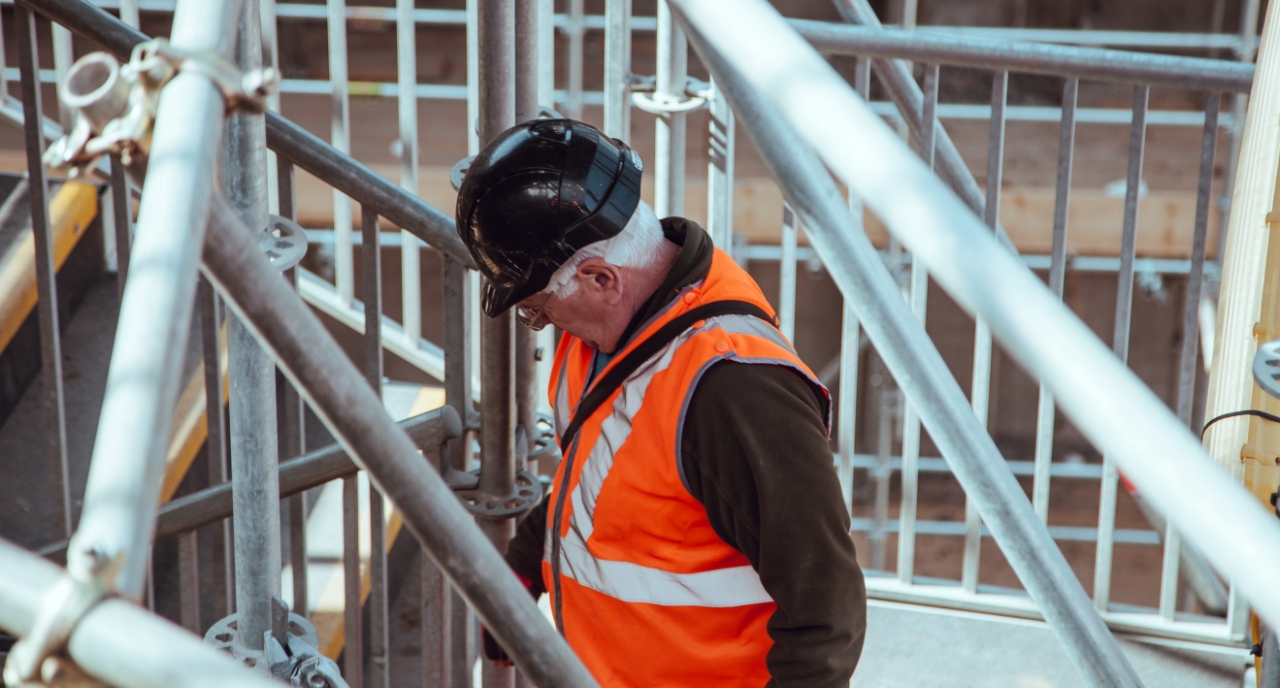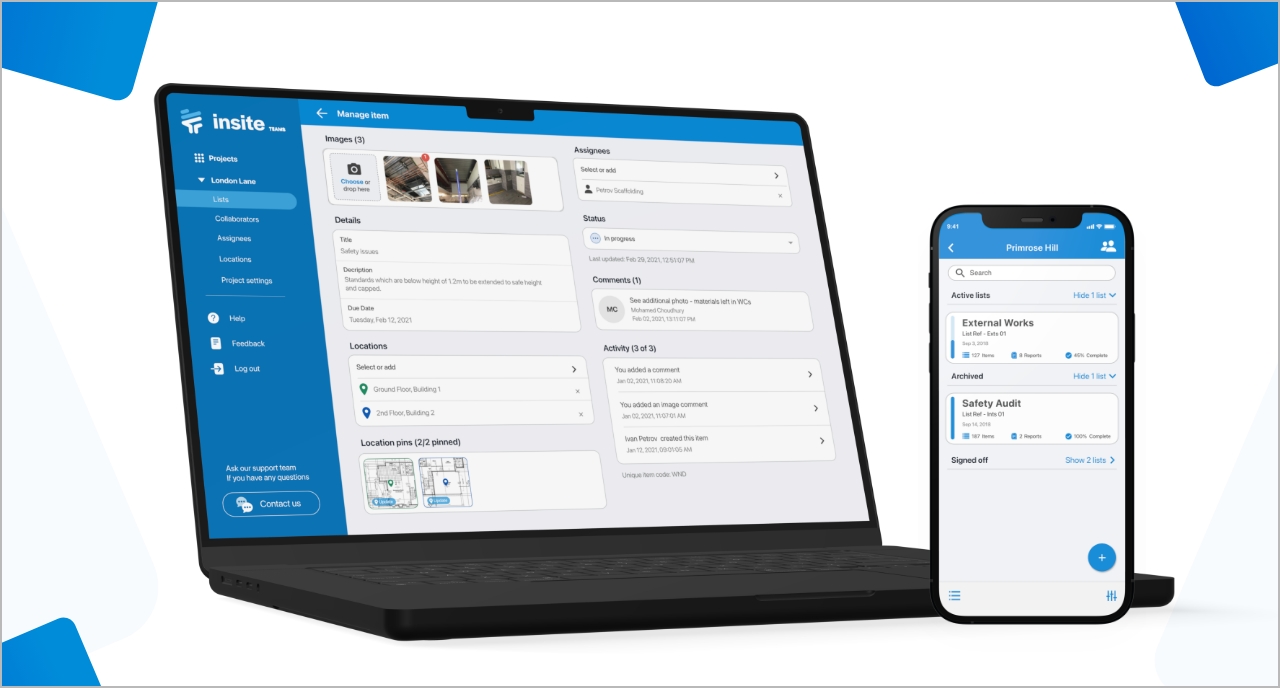Resources
Case studies
Videos
Sample reports
Free inspection templates
Learn
Blog
Product brochure
Training pack
Get the app
Download the app
Changelog
2023-06-14 | 3 min read
tags: Safety Risk Construction
Building Safer Workspaces: A Guide to Risk Reduction in Construction

In the construction industry, prioritising safety isn’t just a legal necessity, it’s a moral imperative. Ensuring a safe workspace isn’t merely about compliance, it’s about safeguarding the lives and health of individuals who contribute their skills to erect the structures we see around us every day.
Understanding Hazards and Risks
Safety begins with knowledge. Hazards are potential sources of harm, and risks refer to the chance of that harm occurring. Typical hazards on a construction site can include falls from height, injuries from operating machinery, electrocution, or being struck by falling objects. Utilising construction site inspection software can play a crucial role in identifying these hazards systematically.

Legal Considerations
In the UK, safety regulations such as the Health and Safety at Work Act underscore the importance of creating a safe work environment. These rules are designed to protect workers and provide guidelines for employers, creating a safety net for all involved parties. Regular inspections conducted through site audit software ensure compliance with these regulations, safeguarding against legal repercussions.
Practical Measures to Minimise Hazards
Minimising hazards starts with careful planning and comprehensive risk assessment. Potential hazards must be identified, the risks they pose evaluated, and appropriate control measures implemented. Construction site inspection software aids in this process, facilitating detailed inspections and ensuring that no potential hazard is overlooked. Furthermore, training and ensuring workers are aware of these hazards and the safety measures in place is crucial. An informed worker is a safe worker.
Technology’s Role in Risk Reduction
In the digital age, technology plays a significant role in risk reduction. A mobile web application for project management, for example, can streamline communication, track safety incidents, and provide real-time alerts for potential hazards. Site audit software enhances this further by offering structured frameworks for audits, ensuring comprehensive coverage of safety protocols. In this way, everyone involved in a project is kept up-to-date about safety issues, increasing response time and reducing the likelihood of accidents.

Building a Safety Culture
An integral part of minimising hazards is cultivating a robust safety culture. This involves emphasising worker participation and open communication. Site audit software can support this by enabling easy reporting of observations and concerns from workers, making the process of voicing safety issues straightforward and efficient. Workers on the ground often have first-hand knowledge of potential risks, so their input is invaluable. Encouraging workers to voice their concerns or suggestions creates a proactive approach to safety, helping prevent accidents before they happen.
Conclusion
To sum up, safety in the construction industry is a multifaceted issue that demands attention and action from all involved parties. It involves understanding hazards and risks, complying with legal requirements, implementing practical safety measures, leveraging technology like construction site inspection software, and fostering a proactive safety culture. These tools and approaches are vital in ensuring that safety is not just a compliance requirement but a fundamental part of daily operations.
We urge everyone in the construction industry to prioritise safety - not just because it’s the law, but because construction workers deserve a safe environment in which to ply their craft. After all, the structures they build are testimonies to their skill and dedication. It’s every manager’s responsibility to ensure they can do their jobs without fear for their well-being.
Get started with Insite
If you’re looking for a solution, Insite is here for you. Book a demo or sign up for a trial today. Get in contact for further information we’re here to help and will be happy to answer any questions you may have.